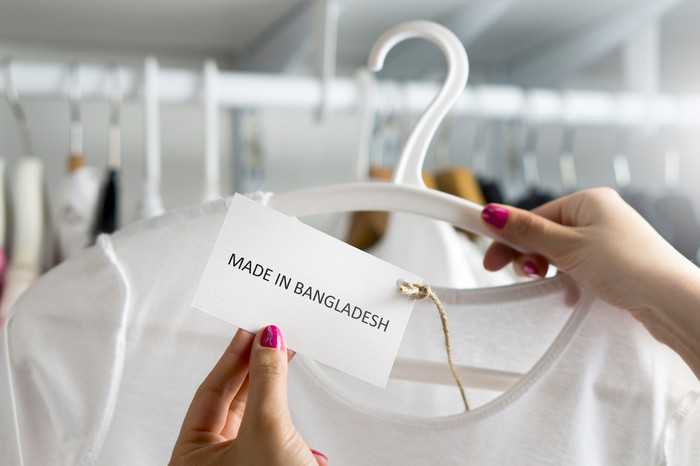Lululemon Faces Troubling Allegations From Bangladeshi Workers

Image collected
Lululemon (NASDAQ:LULU) was recently hit by allegations of worker abuse at one of its suppliers' factories in Bangladesh. The Guardian interviewed several female workers at Lululemon's supplier Youngone, who claimed that they were verbally abused, beaten, and forced to work overtime to hit quotas.
The report claims that Youngone's laborers only earn about 9,100 taka ($107) a month, which is well below the national average of about 13,200 taka ($156). By comparison, a pair of Lululemon's leggings can cost up to $148.
Lululemon said that it didn't currently have any outstanding orders from the factory mentioned, but stated that it would immediately launch an investigation into Youngone. However, investors should recall that Lululemon struggled with supply chain issues before, and that Bangladesh's garment industry has been a hotbed for safety issues and worker abuse.
Revisiting Lululemon's supply chain problems
Over the past two years, Lululemon became a "best in breed" retailer with its consistent streak of double-digit comps growth and expanding margins. But things didn't always look so rosy for the athleisure apparel retailer.
Back in 2013, Lululemon recalled one of its best-selling yoga pants after consumers complained that the stretch material was too sheer, and the debacle led to the dismissal of Lululemon's chief product officer and the resignation of its CEO. In 2015, Lululemon recalled several products due to dangerous drawstrings, following several injuries attributed to the products.
Lululemon eventually recovered from those missteps and became more cautious about balancing costs, speed, and quality control standards across its supply chain. But in 2017, Lululemon announced that it would prioritize speed again by expanding its supply chain into new markets like Haiti. That shift could be putting pressure on its suppliers in South and Southeast Asia, which produced 79% of Lululemon's products last year. The company doesn't break down its supply chain by country, but factories in Bangladesh, one of the world's top textile and apparel exporters, likely account for a significant portion of that core supply chain.
The problem with Bangladesh
Bangladeshi factories are popular with apparel retailers because labor costs are much lower than in other production hubs like China or Vietnam. But to cut costs and boost productivity, some of these factories skirt safety regulations and pay lower wages than others.
Weak enforcement of safety regulations and overcrowding resulted in the Rana Plaza disaster in 2013, in which over 1,100 workers were killed when a factory collapsed. That tragedy resulted in two new initiatives: an accord on fire and building safety, which was signed by about 200 major brands and unions, and an alliance for worker safety.
Lululemon was one of the few retailers that didn't sign either initiative. Instead, the company says that it has "already put the Accord and Alliance's principles into practice through our Vendor Code of Ethics program." In other words, Lululemon is putting the onus on suppliers to enforce those rules.
But at the same time, Bangladeshi suppliers are being forced to absorb new expenses related to the new regulations while struggling to meet rising orders. Those factors all might have contributed to the factory conditions highlighted in The Guardian's article.
Why these issues should matter to investors
Lululemon's robust growth is dazzling many analysts and investors. However, its use of Bangladeshi factories, its unwillingness to sign two key safety agreements, and complaints from workers could all result in a new PR nightmare for the company.
Investors should remember that Gap (NYSE:GPS) was hit by similar allegations (on a much broader scale) in the late 1990s and 2000s. Those black eyes, along with an ill-conceived expansion plan, caused its same-store sales growth to stagnate throughout the 2000s.
I'm not saying that Lululemon will suffer Gap's fate. It could quickly address these worker complaints and weed out any problematic suppliers. However, investors should pay close attention to Lululemon's supply chain and see if any other cracks appear.
Source: https://www.fool.com